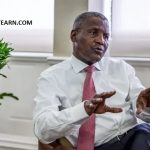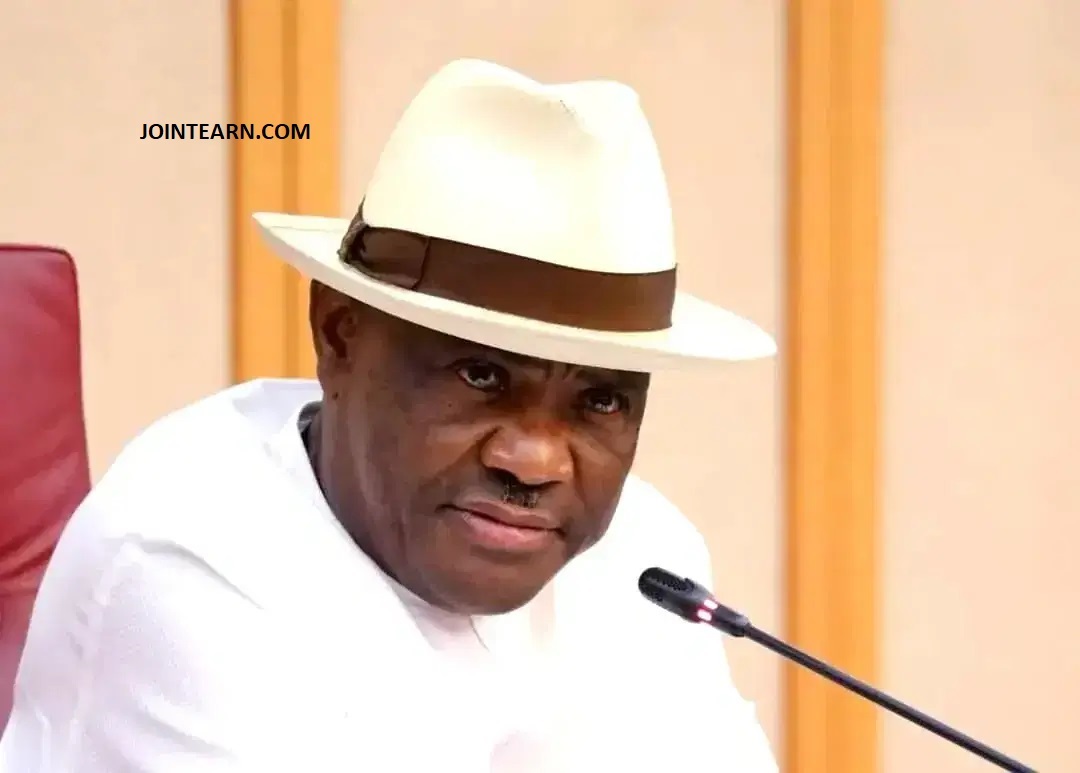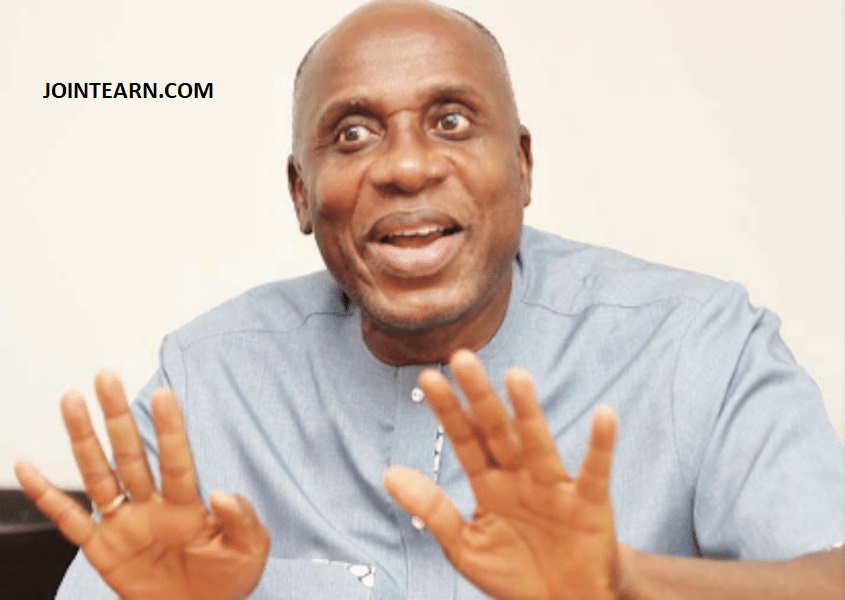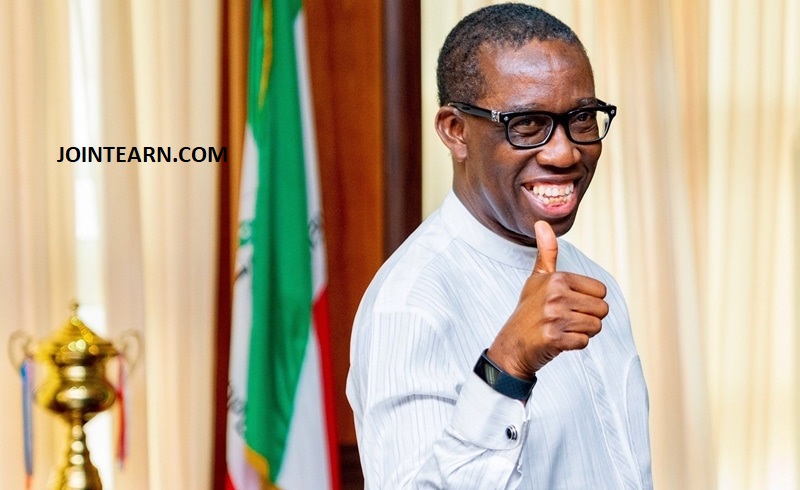The ongoing teachers’ strike in the Federal Capital Territory (FCT) has drawn sharp criticism from the Minister of the Federal Capital Territory (FCT), Nyesom Wike, who lashed out at the area council chairmen over their failure to resolve the issue. Wike accused the council chairmen of being indifferent to the plight of teachers, stating that they were “happy not paying those who take care of your children.”
The strike, which has disrupted educational activities in primary and secondary schools within the FCT, began after teachers in various councils took to the streets to protest against the non-payment of their salaries, inadequate working conditions, and the lack of necessary teaching materials. The strike has left thousands of students without regular classes, and concerns about the academic calendar are mounting.
Wike’s remarks, made in a statement on Tuesday, highlighted the growing frustration among citizens over the persistent failure of local government authorities to address the needs of teachers. His comments came as he addressed the issue in a meeting with the FCT Council chairmen, who have been criticized for their apparent lack of urgency in resolving the dispute.
Wike’s Criticism of Council Chairmen
Wike, who assumed office as FCT Minister amid several promises of reform and improved governance, did not mince words when discussing the strike. He accused the council chairmen of failing in their duties and neglecting the education sector, which he described as one of the most important pillars of a developing society.
“You’re happy not paying those who take care of your children,” Wike stated during the meeting. “This strike has gone on long enough, and it is a shame that the chairmen of the area councils have not prioritized the welfare of our teachers. The education of our children should be a top priority, but these chairmen are more interested in politics than in the lives of the people they were elected to serve.”
Wike went on to question the commitment of the council chairmen to improving education in the FCT, pointing out that their lack of responsiveness to the teachers’ grievances was harming the future of students. “This is not just about salaries; this is about the future of the children who depend on these teachers to give them the education they need,” he said.
The minister further urged the council chairmen to put aside political differences and focus on resolving the dispute to ensure that schools can reopen and students can continue their education without further interruptions.
Teachers’ Grievances and Strike Action
The strike action, which started several weeks ago, was organized by the Nigeria Union of Teachers (NUT) in the FCT, in response to what they describe as years of neglect by the area councils. Teachers have long complained about delayed salaries, poor working conditions, and lack of essential resources for teaching. Despite several attempts to engage with local government authorities, their concerns have largely gone unaddressed.
In particular, the teachers have called for the immediate payment of outstanding salaries, an improvement in their working conditions, and the provision of teaching materials. The NUT has also accused the council chairmen of diverting funds meant for education into other areas, further exacerbating the challenges faced by teachers in the region.
A senior member of the NUT in the FCT, who spoke on condition of anonymity, expressed concern about the long-term impact of the strike on students. “This strike is affecting not just teachers, but the future of the children who are missing out on their education,” the NUT official said. “We have been patient, but the council chairmen have refused to engage with us meaningfully.”
The ongoing strike has left thousands of students without access to quality education, causing a ripple effect in the FCT. Parents have expressed their frustration with the prolonged disruption, and there are growing calls for the government to intervene and put pressure on the area councils to resolve the issue.
Wike’s Call for Immediate Action
In his statement, Wike emphasized that it was time for decisive action. He urged the FCT Council chairmen to immediately meet with the teachers and work out an agreement to end the strike. “You cannot allow your personal interests to hinder the future of the children in your councils. The time to act is now. Resolve this strike and ensure that our children are back in school,” Wike stated.
He also called on the relevant government agencies to provide assistance and oversight to the area councils, to ensure that education remains a priority and that funds allocated for the sector are properly utilized. “If the councils cannot meet their obligations to teachers, then we must step in to ensure that education is not further disrupted,” Wike warned.
Wike’s remarks reflect growing concerns about the state of education in Nigeria, particularly at the local government level. Teachers have long struggled with inadequate pay and working conditions, and the current strike in the FCT is a reflection of the broader challenges facing the education sector in the country.
Political Implications and Public Sentiment
The strike and Wike’s comments have also stirred political debate in the FCT. Some political observers believe that the ongoing crisis could have implications for the political fortunes of the area council chairmen, particularly as the next round of elections approaches. The education crisis has become a key issue for parents and other voters, and the chairmen’s failure to address the problem could cost them public support.
“The council chairmen are on the brink of losing the support of the people,” said Dr. Chika Okafor, a political analyst based in Abuja. “This strike has exposed their lack of leadership and disregard for the welfare of citizens. If they fail to resolve this issue quickly, it will be difficult for them to regain the trust of the electorate.”
On the other hand, some have criticized Wike for focusing too much on the council chairmen and not taking enough responsibility for the broader issues in the education sector. “While the council chairmen are certainly to blame for their inaction, Wike, as the FCT Minister, should also be doing more to ensure that the education system is properly funded and managed,” said a source within the education sector.
Conclusion
The ongoing strike by teachers in the FCT and Nyesom Wike’s pointed criticisms of the area council chairmen highlight the urgent need for reform in Nigeria’s education system, particularly at the local government level. Wike’s call for immediate action reflects the frustration of many citizens who are demanding that local government leaders prioritize the welfare of teachers and students.
As the strike continues to disrupt the education of thousands of students, all eyes are now on the council chairmen to see whether they will heed the call for action and bring an end to the crisis. The future of education in the FCT—and possibly the political careers of those involved—hangs in the balance.












